As part of winning the Atiyeh Prize, the week of November 12 I attended the Middle East Librarians Association (MELA) and Middle East Studies Association (MESA) conferences. My work with Syriac Paleography is actually what introduced me to the digital humanities as an undergraduate at Mount Holyoke College. I began as a research assistant on this project building a dataset of letter images from ancient and medieval Syriac manuscripts. I continued working on the project for the rest of my time at Mount Holyoke and was so inspired by the level of research possible using digital tools, that I decided I wanted to be a librarian. What I discovered this past week, however, is that many librarians do not share the same excitement for DH that I have.
The first day of the MELA conference there was a panel discussion about librarians and digital humanities projects. As a digital humanist, I came into the panel excited about digital humanities as a librarian, but quickly saw that some others are not as excited about the realities of DH work as I was. Many librarians expressed discomfort with their scope of involvement in faculty member’s projects. They were expected to know everything, every tool, every standard, every expert detail. However, in some cases, the professors did not listen to the librarians. They ignored the importance of metadata and standards – the things that librarians know the best and can contribute the most expertise! Another issue that was raised was the DH project graveyard. What happens when a professor leaves and doesn’t take their project with them? Or loses interest when a project takes several years to complete? Who becomes the steward of the project? In many cases, it is the librarian to whom this duty falls.
This panel left me feeling unsettled. I’m a library student with big ideas and confidence in the digital humanities! And yet, these are some of the realities of being involved in DH as a librarian:
*The goals of librarians and faculty sometimes do not align.
*Librarians often do not get sufficient credit for the work they do on DH projects
*Librarians are often responsible for maintaining projects without proper long term plans
On one hand, these can be deflating realities for an aspiring librarian, but they can also be opportunities to envision how librarianship is changing.
Then, MESA began and I learned about exciting DH projects that are under work. One in particular that stuck out to me was the Historical Index of the Medieval Middle East. First, what project could be more me? After speaking to Thomas Carlson, the scholar who is developing HIMME, I became more and more excited about the possibilities of digital scholarship. This project will index primary sources and link scholars with these sources based on the person, event, place, language, etc. in which they are interested. Sitting at dinner, I imagined all the new scholarship this will enable. The sources that will become available to future scholars. The library concepts that this project utilized! Linked data! RDF! GIS! Cataloging! And maybe eventually all the works that are referenced will also be digitally accessible! One of the exciting things about being a librarian is recognizing the long history of existing challenges while also being open to new possibilities the future may hold.

1 thought on “Conference Lessons: The Realities of DH and Librarianship”
Comments are closed.